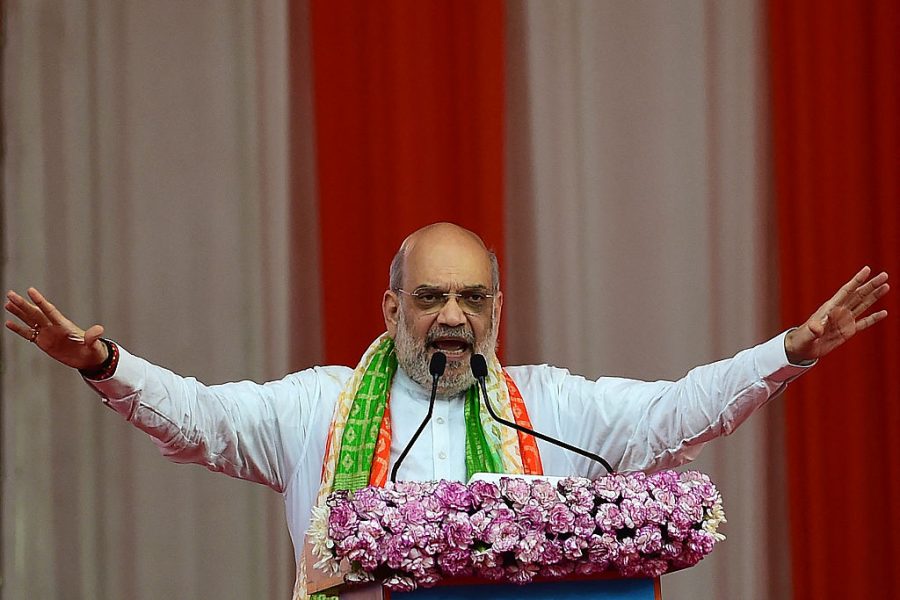India’s Hindu nationalist rulers are waging war on the English language. They like to claim it is the language of colonial subjugation. Amit Shah, the home minister and a powerful ally of Prime Minister Narendra Modi, has predicted that the day is coming when Indians who speak English will feel ‘ashamed’ to do so. In his eyes, the English language is a legacy of colonial rule and should be stamped out.
It is hard to think of anything more stupid and counterproductive than this shameless campaign. Rahul Gandhi, the leader of the opposition Congress party, was withering in his condemnation: ‘English is not shameful; it is empowering. English is not a chain; it is a tool to break the chains.’ Hear, hear to that!
The English language has helped, not hindered, India in the modern era
Shah has long railed against colonial rule in India. He and others in the Indian government argue that the British Empire ‘enslaved’ Indian minds long after the Raj. ‘I believe that the languages of our country are the ornament of our culture. For our history and culture to be understood, it cannot be done in foreign languages.’ This is nonsense.
Attacking English speakers in India ignores the larger truth that the country has no real national language of its own. Hindi is the official language of central government, even though it is not widely spoken in other parts of the country. Even the Hindustani of Bollywood films is spoken mainly by Indians concentrated in the ‘cow belt’ of northern India. The rest of the subcontinent speaks hundreds of regional vernaculars. English is the only language that binds the whole together, a genuine lingua franca. Why belittle it?
Much official daily business across India would be difficult, if not impossible, without English. It is the language of business, science and technology across the country. Proficiency in the language can often lead to better employment prospects and higher earnings. That’s why many aspirational Indians want their children to go to a school where lessons are taught in English – it is a means of escape from the rigid caste and class hierarchies that persist across the country to this day. Roughly 129 million people speak English across the country; that is second only to the United States in terms of overall numbers of English speakers.
When Jawaharlal Nehru, India’s first post-independence leader, delivered his famous ‘Tryst with Destiny’ speech on the eve of India’s independence in August 1947, he did so in English. That speech, widely celebrated for its eloquence, marked the real end of colonial rule in India. How odd that Nehru’s modern-day successors don’t appreciate the language he spoke in.
Shah’s assault on the English language has inevitably sparked nationwide debate about the enduring legacy of British rule. That is what he wants to focus on. It has also prompted renewed suspicions about what this campaign is really about, which is less welcome for the government.
Ministers would prefer Hindi to take precedence over English when it comes to language. Why would that be? Is it just a coincidence that Hindi is spoken primarily in northern India, which is where the ruling BJP party gets most of its votes? Voters elsewhere, who do not speak Hindi, are right to be suspicious. Opposition politicians likewise have their doubts. The Congress party claims the government does not want poor Indians, trapped at the bottom of society, to learn English because it doesn’t want them to move ahead in society and attain equality. Maybe, maybe not.
What can be said with certainty is that the English language has helped, not hindered, India in the modern era. Its rulers should be celebrating the country’s English-speaking millions, not denigrating them in a petty and manufactured language war – to make a meaningless point about the colonial past.








Comments